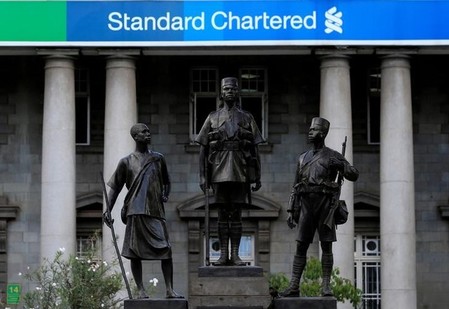By Tom Arnold
DUBAI (Reuters) – Standard Chartered will consider whether it can restart correspondent banking relationships with Sudan following the proposed lifting of U.S. sanctions, a senior executive said.
Anurag Bajaj, who oversees the British-based lender’s correspondent banking business, where it provides services for other banks, said the bank was reviewing the implications of last month’s move by the outgoing Obama administration to unfreeze assets and remove financial sanctions in return for its help in fighting Islamic State and other groups.
The sanctions relief will come in six months if Sudan takes further steps to improve its human rights record and makes progress resolving its military conflicts.
“How significant the unravelling of the sanctions are [in Sudan] we will look at,” Bajaj, Standard Chartered’s global head of banks, transaction banking, told Reuters.
“Our sanctions team will review it before taking a decision,” he added.
For Sudan, the resumption of correspondent banking relationships will be vital to turning around its economy, which has struggled since South Sudan seceded in 2011, taking with it three-quarters of the country’s oil output.
But banks are likely to be cautious given the tougher immigration rules imposed by President Donald Trump on citizens from seven countries, including Sudan, that could affect the country’s relations with the United States.
Standard Chartered admitted in 2012 to breaking U.S. sanctions against Sudan, as well as Iran and Libya.
Bajaj said Iran, which the Trump administration earlier this month imposed sanctions on following a ballistic missile test, remained off-limits for the bank as it was “sanctioned.”
However, he added that while the bank had cut ties with some clients in other countries to guard against the risk of falling foul of rules on sanctions or money laundering, it was still only a “minimal” number in global terms.
“There’s always the odd-one, rare client that will not match our risk appetite but there are also clients that we are growing our business with,” he said.
(Editing by Greg Mahlich)


